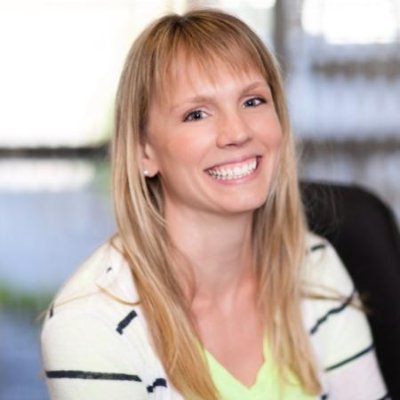Feature Articles
On the Lack of Cyber Security of Medical Devices
 Two weeks ago the U.S. Food and Drug Administration advised hospitals not to use Hospira's Symbiq infusion system, concluding that a security vulnerability enables hackers to take remote control of the system. The agency issued the advisory some 10 days after the U.S. Department of Homeland Security warned of the vulnerability in the pump. My view is that this will be the first of many advisories. For years, manufacturers of medical devices depended on the “kindness of strangers” assuming that devices would never be targeted by bad actors. EKG machines, IV pumps, and radiology workstations are all computers, often running un-patched old operating systems, ancient Java virtual machines, and old web servers that no one should currently have deployed in production.
Two weeks ago the U.S. Food and Drug Administration advised hospitals not to use Hospira's Symbiq infusion system, concluding that a security vulnerability enables hackers to take remote control of the system. The agency issued the advisory some 10 days after the U.S. Department of Homeland Security warned of the vulnerability in the pump. My view is that this will be the first of many advisories. For years, manufacturers of medical devices depended on the “kindness of strangers” assuming that devices would never be targeted by bad actors. EKG machines, IV pumps, and radiology workstations are all computers, often running un-patched old operating systems, ancient Java virtual machines, and old web servers that no one should currently have deployed in production.
PrecisionFDA: A Community Approach For Submitting & Evaluating Diagnostic Tests
 DNAnexus has been awarded a research and development contract by the FDA’s Office of Health Informatics to build precisionFDA, an open source platform for community sharing of genomic information. precisionFDA is a new approach for evaluating bioinformatics workflows, and is an integral part of FDA’s work in better understanding diagnostic tests that incorporate next-generation sequencing (NGS) technologies. As a component of the White House’s Precision Medicine Initiative, precisionFDA’s streamlined approach to evaluating NGS-based diagnostics and creation of reference datasets will build a community around best-practices resources and democratize the submission process to the FDA.
DNAnexus has been awarded a research and development contract by the FDA’s Office of Health Informatics to build precisionFDA, an open source platform for community sharing of genomic information. precisionFDA is a new approach for evaluating bioinformatics workflows, and is an integral part of FDA’s work in better understanding diagnostic tests that incorporate next-generation sequencing (NGS) technologies. As a component of the White House’s Precision Medicine Initiative, precisionFDA’s streamlined approach to evaluating NGS-based diagnostics and creation of reference datasets will build a community around best-practices resources and democratize the submission process to the FDA.
FDA to Advance Precision Medicine by Enabling Open Source Collaborative Informatics
 FDA plays an integral role in President Obama’s Precision Medicine Initiative, which foresees the day when an individual’s medical care will be tailored in part based on their unique characteristics and genetic make-up. Yet while more than 80 million genetic variants have been found in the human genome, we don’t understand the role that most of these variants play in health or disease. Achieving the President’s vision requires working collaboratively to ensure the accuracy of genetic tests in detecting and interpreting genetic variants. We are working towards that goal by developing an informatics community and supporting platform we call precisionFDA.
FDA plays an integral role in President Obama’s Precision Medicine Initiative, which foresees the day when an individual’s medical care will be tailored in part based on their unique characteristics and genetic make-up. Yet while more than 80 million genetic variants have been found in the human genome, we don’t understand the role that most of these variants play in health or disease. Achieving the President’s vision requires working collaboratively to ensure the accuracy of genetic tests in detecting and interpreting genetic variants. We are working towards that goal by developing an informatics community and supporting platform we call precisionFDA.
A Call To Policy Makers: Open Source Is Where Innovation Is Happening
 The impact of technology on society and the economy continues to excite and challenge all of us. Policy makers are no exception. Their objective—writ large—is to put in place policies that encourage the development and deployment of beneficial technologies in order to drive growth, prosperity, and the general welfare of their citizens. Where should policy makers focus? The best place is where the future is happening. In other words, the best place is where innovation is happening...
The impact of technology on society and the economy continues to excite and challenge all of us. Policy makers are no exception. Their objective—writ large—is to put in place policies that encourage the development and deployment of beneficial technologies in order to drive growth, prosperity, and the general welfare of their citizens. Where should policy makers focus? The best place is where the future is happening. In other words, the best place is where innovation is happening...
The EHR Debacle: Has Organized Medicine Failed Us?
 By now, it should be no secret that physicians in the United States, although largely receptive to the idea of electronic health records (EHRs), are widely dissatisfied with the current state of the art, and with the way that EHR adoption is being implemented.[1] Indeed, Congress[2] has shown continuing – but sometimes seemingly perfunctory – interest in the concerns of physicians and other health care providers, and I am at this point pessimistic about seeing any results of its efforts in the near future unless a more fundamental change is made in our approach. As Einstein noted, “We cannot solve our problems with the same thinking that created them.”
By now, it should be no secret that physicians in the United States, although largely receptive to the idea of electronic health records (EHRs), are widely dissatisfied with the current state of the art, and with the way that EHR adoption is being implemented.[1] Indeed, Congress[2] has shown continuing – but sometimes seemingly perfunctory – interest in the concerns of physicians and other health care providers, and I am at this point pessimistic about seeing any results of its efforts in the near future unless a more fundamental change is made in our approach. As Einstein noted, “We cannot solve our problems with the same thinking that created them.”
An Open Source Mapping Primer
 As you've surfed the web, you've surely come across many sites using embedded maps to display data. Humans are visual creatures, so presenting temperatures, crime statistics, or population densities on a map often makes quickly discerning patterns and spatial relationships easier than presenting the same facts as a boring table. Visualizations based on maps can be quite sophisticated and even show patterns across time as well as space; Maps Mania is one blog showcasing many great examples of online maps. But displaying data on an embedded map doesn't need to be a complicated affair. You can do it using open source tools. In this post, I offer some tips for getting started doing this...
As you've surfed the web, you've surely come across many sites using embedded maps to display data. Humans are visual creatures, so presenting temperatures, crime statistics, or population densities on a map often makes quickly discerning patterns and spatial relationships easier than presenting the same facts as a boring table. Visualizations based on maps can be quite sophisticated and even show patterns across time as well as space; Maps Mania is one blog showcasing many great examples of online maps. But displaying data on an embedded map doesn't need to be a complicated affair. You can do it using open source tools. In this post, I offer some tips for getting started doing this...
EHR Interoperability With Long-Term Care Providers Wanted, but Who Will Pay?
CMS has urged skilled nursing facilities (SNFs) and home care agencies to acquire electronic health record systems that are capable of exchanging data with hospitals and other health care providers, but it hasn't explained where these long-term and post-acute-care (LTPAC) providers will get the money to implement these health IT systems. LTPAC providers are ineligible to participate in the federal EHR incentive program. CMS has proposed raising payments to SNFs by 1.4% in fiscal year 2016, but that is barely enough to cover inflation. Beginning in FY 2018, CMS plans to apply the same value-based payment system to SNFs that it already is using with hospitals and physicians. Many of those providers, however, have more advanced health IT systems to help them make that transition.
When the Healthcare System Works
 As I’ve written about several times in the past, this “care traffic control”, directing the patient to right intensity of care, then closing the loop for followup care is the future of medicine. It’s high quality, lower cost, and improves outcomes. The IT systems required to do it are more about workflow and process than the simple capture of records. As we envision the next generation of electronic tools, support for team based care with handoff management and closed loop communication among the stakeholders will be the most important new features. Read More »
As I’ve written about several times in the past, this “care traffic control”, directing the patient to right intensity of care, then closing the loop for followup care is the future of medicine. It’s high quality, lower cost, and improves outcomes. The IT systems required to do it are more about workflow and process than the simple capture of records. As we envision the next generation of electronic tools, support for team based care with handoff management and closed loop communication among the stakeholders will be the most important new features. Read More »
UK Health Service Nurtures Open Source Communities
 The United Kingdom’s National Health Service (NHS) is nurturing a growing number of communities of software developers working on open source solutions. NHS’ Code4Health team is now supporting 17 communities that bring together health care providers, developers and supporters. Examples include Open Odonto, open source software for dentistry, and openMAXIMS, guiding the development of an open source electronic patient record system for the NHS. A third community working with Code4health is openEobs, a project that helps clinicians and managers ensure safer patients, safer wards and safer hospitals.
The United Kingdom’s National Health Service (NHS) is nurturing a growing number of communities of software developers working on open source solutions. NHS’ Code4Health team is now supporting 17 communities that bring together health care providers, developers and supporters. Examples include Open Odonto, open source software for dentistry, and openMAXIMS, guiding the development of an open source electronic patient record system for the NHS. A third community working with Code4health is openEobs, a project that helps clinicians and managers ensure safer patients, safer wards and safer hospitals.
Antibiotic Resistance Doesn't Just Make Bacteria Harder To Kill – It Can Actually Make Them Stronger
 Bacteria can become drug-resistant in two ways – resistance can be natural, meaning that the genes conferring resistance are already present in the bacterial chromosome, or they can be acquired through mutation or by picking up antibiotic-resistance genes from other microbes. It is now possible to use new DNA-sequencing technologies to take a closer look at how the antibiotic resistance can make some bacteria weaker or stronger. And in a new study, we found that – contrary to conventional wisdom around antibiotics – resistance can actually make some bacteria fitter and even more virulent.
Bacteria can become drug-resistant in two ways – resistance can be natural, meaning that the genes conferring resistance are already present in the bacterial chromosome, or they can be acquired through mutation or by picking up antibiotic-resistance genes from other microbes. It is now possible to use new DNA-sequencing technologies to take a closer look at how the antibiotic resistance can make some bacteria weaker or stronger. And in a new study, we found that – contrary to conventional wisdom around antibiotics – resistance can actually make some bacteria fitter and even more virulent.
Memorial Sloan Kettering-Early Adopter of Drupal 8 Open Source CMS
 At Memorial Sloan Kettering (MSK), the world's oldest and largest private cancer center, our researchers and clinicians have pushed boundaries to generate new knowledge in patient care and cancer research for more than 130 years. This culture of innovation allows our scientists to continually develop new methods for treatment and work tirelessly to discover more effective strategies to prevent, control, and ultimately cure cancer...We chose to build with Drupal 8 for many reasons—which we explained at DrupalCon LA and I elaborated on the Phase2 blog—but when we set out, there was no guarantee that the platform would deliver on our goals. Drupal 8 was far from an official launch. But as with all bold pursuits at MSK, a little bit of uncertainty is a given. This mix of careful consideration, persistence, and unanswered questions is what drives progress, whether in the lab or on the web...
At Memorial Sloan Kettering (MSK), the world's oldest and largest private cancer center, our researchers and clinicians have pushed boundaries to generate new knowledge in patient care and cancer research for more than 130 years. This culture of innovation allows our scientists to continually develop new methods for treatment and work tirelessly to discover more effective strategies to prevent, control, and ultimately cure cancer...We chose to build with Drupal 8 for many reasons—which we explained at DrupalCon LA and I elaborated on the Phase2 blog—but when we set out, there was no guarantee that the platform would deliver on our goals. Drupal 8 was far from an official launch. But as with all bold pursuits at MSK, a little bit of uncertainty is a given. This mix of careful consideration, persistence, and unanswered questions is what drives progress, whether in the lab or on the web...
Celebrating Generation Open – Open Data Institute Awards Network Thinkers Who Are Changing The World
 On Thursday, July 9, the Open Data Institute (ODI) celebrated its second annual Open Data Awards, at Bloomberg London, celebrating a generation of network thinkers who are changing the world with open data. Awarded by ODI Co-founders, Sir Tim Berners-Lee and Sir Nigel Shadbolt, 300 delegates convened to recognise today’s open data champions creating real world impact. From Kenya, Uruguay and Indonesia, to Brussels, Italy, and Ukraine, the ODI received over 500 nominations commending unsung heroes working with open data worldwide. Read More »
On Thursday, July 9, the Open Data Institute (ODI) celebrated its second annual Open Data Awards, at Bloomberg London, celebrating a generation of network thinkers who are changing the world with open data. Awarded by ODI Co-founders, Sir Tim Berners-Lee and Sir Nigel Shadbolt, 300 delegates convened to recognise today’s open data champions creating real world impact. From Kenya, Uruguay and Indonesia, to Brussels, Italy, and Ukraine, the ODI received over 500 nominations commending unsung heroes working with open data worldwide. Read More »
Creating Beth Israel's FY16 Information Systems Strategic Plan
 I recently wrote about the process of setting FY16 Clinical Information System Priorities for the next year. That project is proceeding well and in parallel I’ve created my own contribution. I do not want to influence the stakeholder consensus at all, but members of the IS Governance committee asked for my opinion. Here’s my thinking...Each year, Beth Israel Deaconess Medical Center (BIDMC) Information Systems works with business owners to support BIDMC annual goals with information technology tactics. This ensures that the mission of BIDMC is supported by suitable operational tools. From 2012-2015, all hospitals in the US were compelled to focus their attention on Meaningful Use, ICD-10, the HIPAA Omnibus Rule, and the Affordable Care Act. Since those projects are nearly completed, it is important for BIDMC stakeholders to enumerate the new technology priorities which will best support their activities in the coming year. Read More »
I recently wrote about the process of setting FY16 Clinical Information System Priorities for the next year. That project is proceeding well and in parallel I’ve created my own contribution. I do not want to influence the stakeholder consensus at all, but members of the IS Governance committee asked for my opinion. Here’s my thinking...Each year, Beth Israel Deaconess Medical Center (BIDMC) Information Systems works with business owners to support BIDMC annual goals with information technology tactics. This ensures that the mission of BIDMC is supported by suitable operational tools. From 2012-2015, all hospitals in the US were compelled to focus their attention on Meaningful Use, ICD-10, the HIPAA Omnibus Rule, and the Affordable Care Act. Since those projects are nearly completed, it is important for BIDMC stakeholders to enumerate the new technology priorities which will best support their activities in the coming year. Read More »
5 Open Source Natural Language Processing Tools
 Open source is chock full of high-quality libraries to solve common problems in text processing like sentiment analysis, topic identification, automatic labeling of content, and more. More importantly, open source also provides many building block libraries that make it easy for you to innovate without having to reinvent the wheel. If all of this stuff is giving you flashbacks to your high school grammar classes, not to worry—we've included some useful resources at the end to brush up your knowledge as well as explain some of the key concepts around natural language processing (NLP). To begin your journey, check out these projects...
Open source is chock full of high-quality libraries to solve common problems in text processing like sentiment analysis, topic identification, automatic labeling of content, and more. More importantly, open source also provides many building block libraries that make it easy for you to innovate without having to reinvent the wheel. If all of this stuff is giving you flashbacks to your high school grammar classes, not to worry—we've included some useful resources at the end to brush up your knowledge as well as explain some of the key concepts around natural language processing (NLP). To begin your journey, check out these projects...
Interview with Andrej Verity on the Humanitarian.ID Crisis App
 One of the most exciting parts of working in tech is seeing firsthand how it empowers people to solve previously indomitable problems. But the best solutions don’t just materialize on their own — they must be driven forward, often against major odds, by passionate individuals and organizations dedicated to making them a reality. Over the past year, we’ve had the honor of working with Andrej Verity of the UN Office for the Coordination of Humanitarian Affairs (OCHA), who is just such a person. We sat down to talk to him about Humanitarian.ID, the contact management application that transforms how responders coordinate during humanitarian disasters.
One of the most exciting parts of working in tech is seeing firsthand how it empowers people to solve previously indomitable problems. But the best solutions don’t just materialize on their own — they must be driven forward, often against major odds, by passionate individuals and organizations dedicated to making them a reality. Over the past year, we’ve had the honor of working with Andrej Verity of the UN Office for the Coordination of Humanitarian Affairs (OCHA), who is just such a person. We sat down to talk to him about Humanitarian.ID, the contact management application that transforms how responders coordinate during humanitarian disasters.